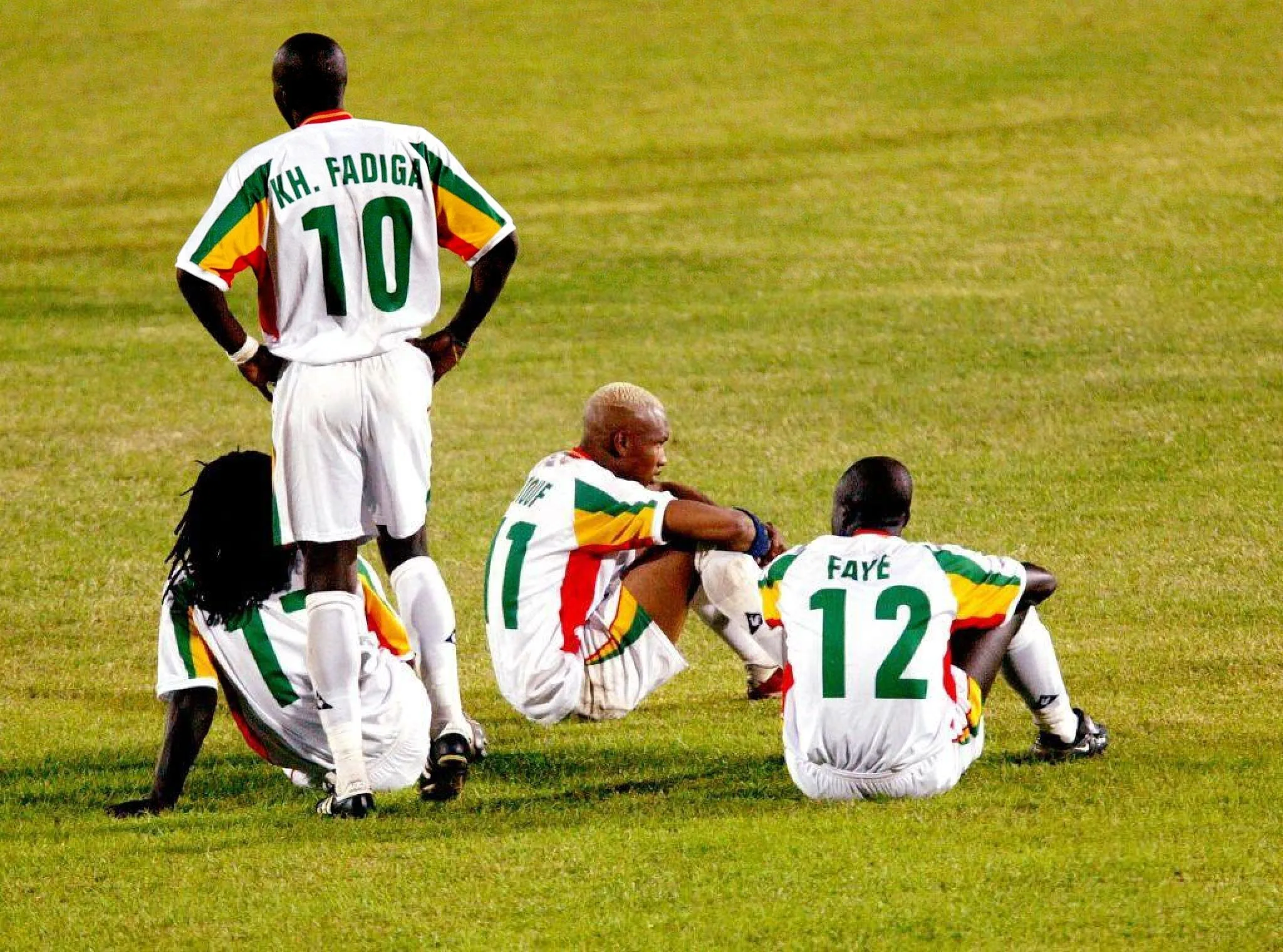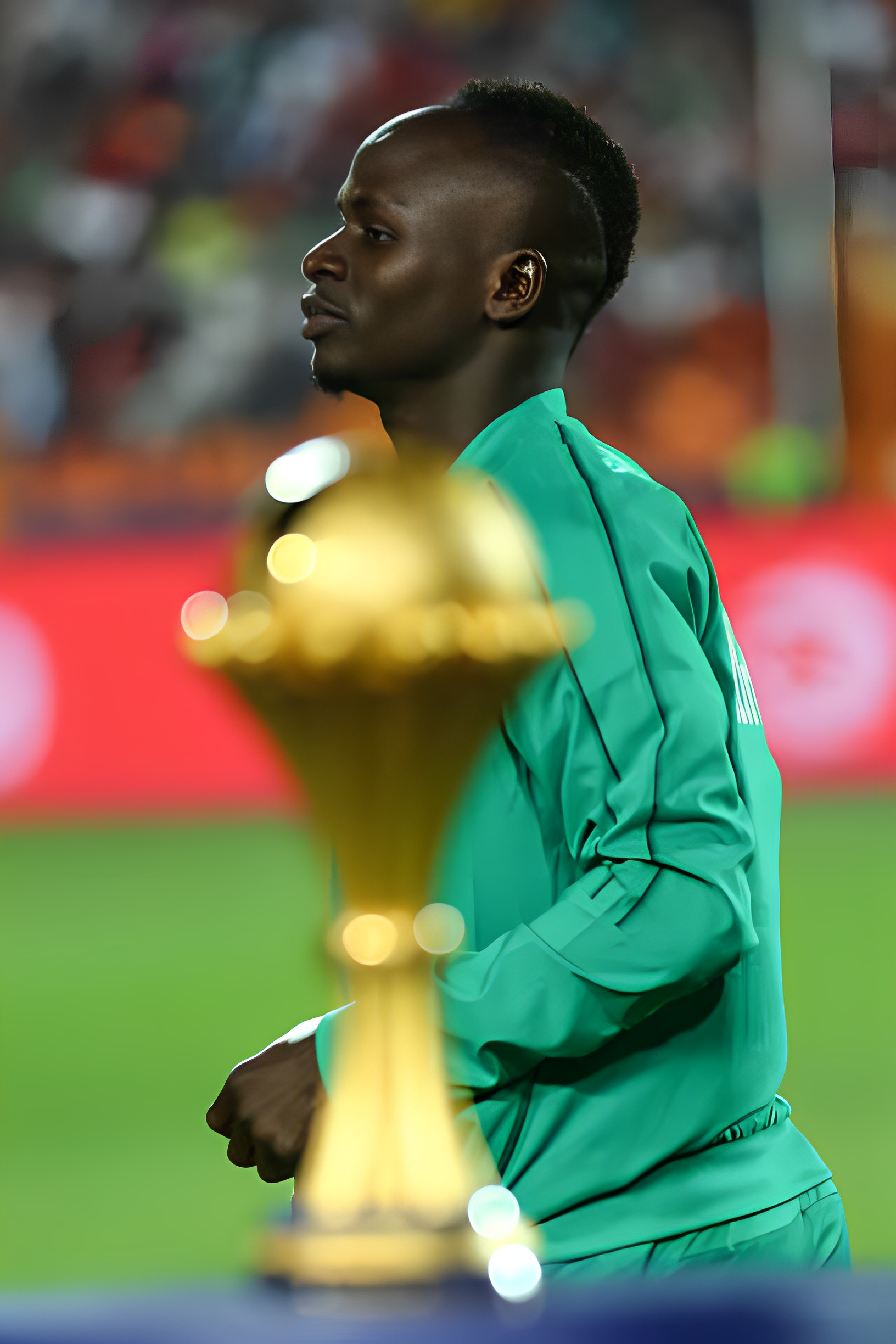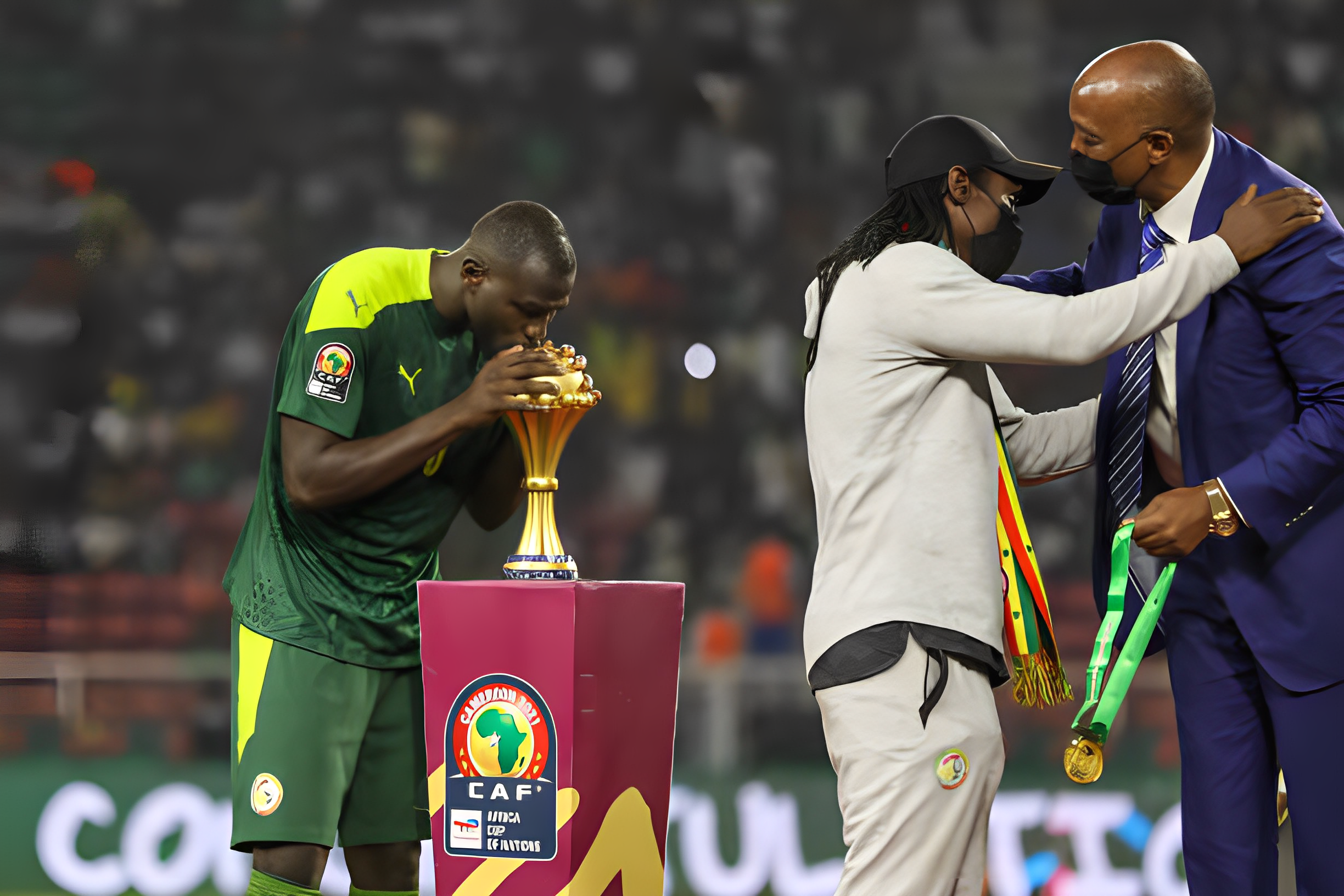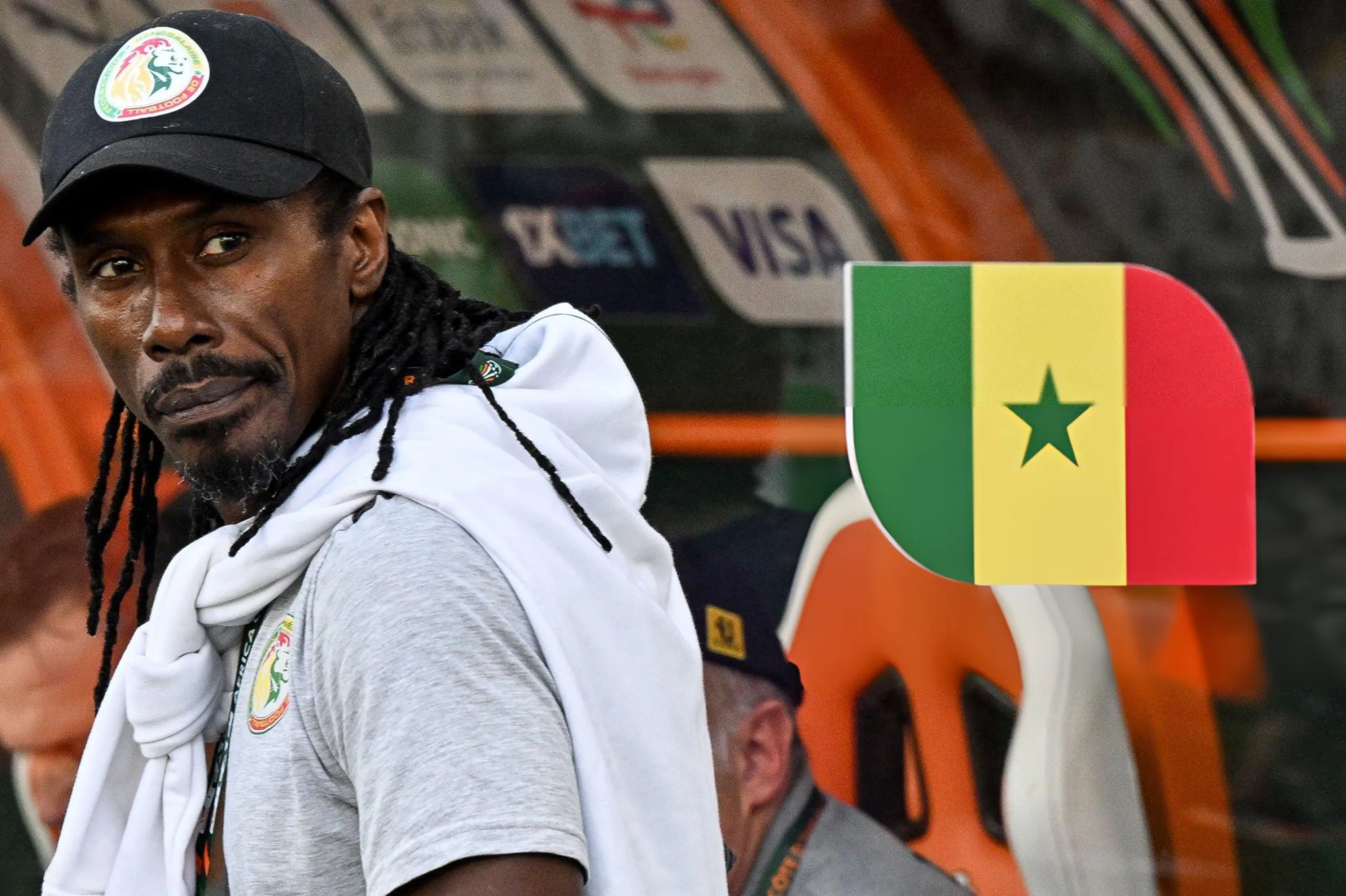A tale of AFCON triumph, World Cup ambitions, and the unwavering spirit of the Teranga Lions of Senegal.
By Tuka Letura
Before their second-place finish in 2019, Senegal’s best campaign at the African Cup of Nations was a similar second-place finish in the 2002 edition in Mali. In the 2002 final, Aliou Cissé, the current coach of the side, had his penalty saved by Alioum Boukar in the shootouts to hand the win to Cameroon, just after El Hadji Diouf had sent Senegal’s previous effort wide of the goal.
In 2006, they came close to achieving a similar feat. Getting past the group stages and the quarterfinals, their hopes were dashed by Egypt after Amr Zaki restored the North Africans’ lead in the final ten minutes of the game. This was further compounded by a loss to Nigeria in the third-place match, courtesy of a goal in the 79th minute by Garba Lawal, which ensured that the Teranga Lions didn’t have a podium finish.

Senegal also failed to qualify for two of the next six editions and only made it through the knockouts on one occasion. Things had slowly gone sour for the Teranga Lions who have had a reputation for honing the stars of the continent. They needed to get things right.
Aliou Cissé was appointed national team coach in March 2015, a move up from managing the nation’s under-23 side. Before his arrival, Senegal had failed to qualify for any of the last three World Cups. The last time Senegal qualified; he was a player on the national team.
Cissé would be the one to calm the storm, stabilise the team, and make them the powerhouse they are today.
The Transformation Route: What Changed?
Towards the end of the 2010s, Senegal got back into the business of having superstars based in Europe on their team. They consisted of both homegrown and foreign-grown talents. Sadio Mané was already important for Senegal and Liverpool, one of the biggest sides in football, and was considered one of the best players in the Premier League. In Italy, Kalidou Koulibaly was touted as the best centre-back in the league and was inches away from being the most expensive defender in football history. In France, Édouard Mendy was at Rennes, strutting it out with the best goalkeepers in the first division, keeping clean sheets every other game. Idrissa Gueye, or Gana as he prefers to go by, has had a good season with Everton in the Premier League.
Senegal had at least one key player in all four areas of the team. But that wasn’t all. Complementary factors had been found in Senegal with players like Krépin Diatta, Ismaila Sarr, and Yousouff Sabaly. Talent and quality had returned to Senegal again, and the onus was now on Aliou Cissé and the FSF to manage properly.
AFCON 2019
Building up to AFCON 2019, all hands were well on deck for the Teranga Lion’s securing qualification. They won five of the six group games, finishing top and qualifying for the final showpiece in Egypt.
The finals would come as a breeze to Cissé’s side. Despite Mané facing suspension in the opening group game, Senegal got two wins in three group-stage games. A win on the first matchday, a loss to Algeria on Mané’s return in the second game, and a 3-0 win against Kenya in the final group game, with Mané scoring twice despite missing a penalty, helped them finish second on the table.
In the round of 16, Senegal picks up a 1-0 win over Uganda, with Mané scoring his third goal of the competition. Gana’s goal in the 70th minute, set up by Mané, was all Senegal needed to get past Benin Republic in the quarterfinals. In a game marked by VAR calls, with talisman Mané seeing two goals chopped off, Senegal made it through to the semi-finals for the first time in 13 years.
It was goalless at the end of regular time in the semi-final between Senegal and Tunisia. Henri Saivet missed his penalty in the 81st minute after Ismailia Sarr had been brought down in the box. Luck would shine on Senegal ten minutes into extra time. A whipped cross into the box would come off Dylan Bronn and into his net to give Senegal the lead and win.
Senegal was in the final again, but things would end rather quickly this time. Algeria took the lead in the second minute after Bagdad Bounedjah’s deflected shot skipped past Alfred Gomis. That was all Algeria needed to get a second win over Senegal to become champions. Like in 2002, Senegal was in second place again.

AFCON 2021
For the next edition in 2021, Senegal, again topped their qualification group, winning the first four games and becoming the first team to book their place in the finals. They also finished unbeaten in the group, with two draws in the final games.
A one-nil win in the opening group game against Zimbabwe following an injury-time penalty by Mané was the only win they needed, and goalless draws to Guinea and Malawi were enough for the Teranga Lions to secure qualification for the knockouts.
Cape Verde was next in line and they presented no issue for Senegal. With Patrick Andrade and Vozinha sent off for Cape Verde in the early stages of the first and second half respectively, Mané and Bamba Dieng put two past them later in the second period, and the quarterfinals were set.
Consecutive 3-1 wins against Equatorial Guinea and Burkina Faso in the quarter-finals and semi-finals respectively meant Senegal was going to its second AFCON final in two years.

After facing defeat in the previous edition, Senegal knew what it meant to lose at that level. Facing another North African side, Egypt – who have won the competition on more occasions than any other team – was a big deal. Senegal came prepared and dominated the game, but none of their attempts could get past Mohammed Abougabal in goal.
After 120 minutes, just like it was almost 20 years prior, penalties were going to decide who lifted the trophy. Kalidou Koulibaly and Abdou Diallo converted their spot kicks for Senegal before FC Bayern’s Bouna Sarr had his effort saved. Bamba Dieng would score his penalty for Senegal, and the ultimate kick fell once again to Mané, who slotted his penalty past Aboud Gabal to seal the victory.
Third time lucky! Senegal and Cissé were now champions of Africa. Everything had aligned for the Teranga Lions, and their roar could be heard across the continent and the rest of the world. Job done. Or was it?
In 2018, Aliou Cissé led Senegal to their first World Cup in 16 years. They picked up four points in the group stages of the finals, as many as Japan had, and a tie-breaker had to be reached. Level on points, goals for and against, and even head-to-head, yellow cards were the final choice. Senegal became the first team to be eliminated under fair play rules. After accumulating six yellow cards in the group stages to Japan’s four, Senegal was out.
Still on the World Cup qualification stage, Senegal was out for business again in 2021. Cissé’s side quickly topped their group, unbeaten once again, and were set to meet Egypt in the final round of qualification. Over two legs, Egypt won the first game at home by a goal, and Senegal did the same in the second leg in Diamiadio. Extra time saw no goals from either side and with the aggregate score at 1-1, penalties were the decider. Sadio Mané took and scored the final spot kick of the shootouts to book Senegal’s place in Qatar for the World Cup.
The chance to raise the stakes, outdo themselves as a squad and outdo their country’s record at the World Cup presented itself at the 2022 World Cup in Qatar. After qualification at the expense of Egypt, Senegal progressed to the knockout stage of the World Cup, but that was as far as they would get. England put three unreplied goals past the African Champions, and their journey in Qatar was over.
Senegal has made it to this year’s AFCON as favourites, and they are looking to become the first team since Egypt in 2010 to defend their trophy and only the fourth different team to play in three consecutive finals after Cameroon, Ghana, and Egypt on two occasions.
So far, they are the second team to qualify for the knockouts after the second game, with Cape Verde being the first to do so. They have also become the first team to pick up all nine available points in the group stages of the tournament. With Cissé, there’s hope in every Senegalese that it is possible.
The Formula for a Winning Streak
For the Teranga Lions, the FSF’s strategy has been to develop and accommodate young talents in age-grade competitions while attracting players with Senegalese heritage. Building a squad that feels more like a family than a group that only shares football in common.
Team Captain, Koulibaly, is the biggest example of players born elsewhere who have chosen to play for Senegal over those nations, and the squad is littered with several other players in similar situations. Youssof Sabaly, Nampalys Mendy, and almost half the squad at each of the last three editions were born in France.
Senegal also maintains a balance between the exuberance of young players and the experience of older players. In each of the last three editions of the Nations Cup, Senegal has had a squad with an average age of 25 on all three occasions. That was not the youngest, despite being in the top ten youngest squads at the competition, but it also never exceeded being the seventh youngest either.
Ismaila Sarr is the earliest example of a key member of Senegal’s engine who came into the squad very young, coming in at 20. Today, that story is similar to Lamine Camara, with his coming after a good CHAN campaign.
Recognition of the team’s achievements has also been a major driver of these successes. With no report of delayed or owed wages, the President of Senegal, Macky Sall, awarded Grand Officers of the National Order of the Lion, the second highest national award, to three players who stood out in their first-ever win: Édouard Mendy, Ismailia Sarr, and Sadio Mané.

Off the pitch, Aliou Cissé saw his salary doubled by the FSF before the start of the World Cup in Qatar. He reportedly earns €45,000 a month, which puts him in the top ten among coaches at AFCON 2023. While the payment of this salary has stopped in the last seven months, per multiple sources in Senegal, there’s no indication that this will affect his dedication to the team at this year’s tournament. It is believed that the Fédération Sénégalaise de Football is trying to sort this out at the moment.
For them, winning has been a theme in recent years. Senegal won the African Cup of Nations at the U-17s, U-20s, and senior level. They are also current holders of the African Nations Championship (CHAN) and the Africa Beach Soccer Cup. Rewarding the successes of the coaches involved in these is paramount to getting a repeat.
Gunning for a repeat, Senegal knows that mere talk and hope without diligent work leads to failure. Now, with the ball at Cissé and Senegal’s feet, the emphasis is on translating aspirations into concrete efforts for success.
Tuka Letura is an experienced sports writer with over five years of experience in the craft. He uses data and statistics to provide analysis and commentary. From regional to worldwide competitions, he has covered a wide range of sports-related events and topics. He is devoted to sharing his enthusiasm for sports with his audience and engaging them with interesting anecdotes and viewpoints.




